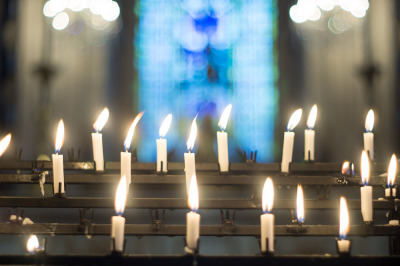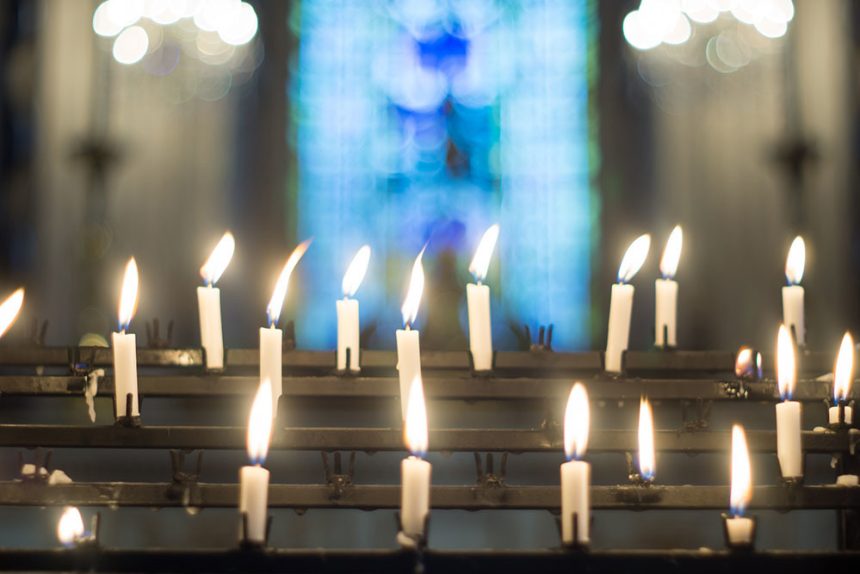
One day my 7-year-old came home from school asking me what he could do to get “likes.” My kids do not have access to social media, but they are growing up in a world governed by it.
In our attention economy, celebrity is king. We want to be seen, and we want to be admired.
If I’m being honest, this is not just a struggle for my children. In my work as a Christian minister and writer, I am tempted to evaluate my efforts in terms of visibility or popularity with others. In fact, ministers are often trained to think this way, privileging Christian leaders with sleek websites and large followings. Our market-driven mentality makes it lamentably easy to confuse spiritual substance with sales.
In the late modern West, we can’t conceive of life apart from the twin pillars of consumerism and celebrity. Everything is a commodity, including ourselves. Most of the time these dynamics are invisible to us even as we participate in them. We don’t need to be professional influencers or public figures to be lured into the quest for disembodied accolades on social media (as my seven-year-old can attest). We reduce our personal and spiritual lives to the size of a Tweet or a #latergram. Sometimes, we take toxic measures to be seen, creating clickbait or even rage bait to expand our influence at any cost. Sometimes we even do this in the name of Jesus.
One powerful antidote to this mentality is to learn more about Christian saints. A few years ago, my sons and I began reading short, illustrated stories about men and women throughout history whom the Church has recognized as uniquely influential in the faith. These heroes of history have incredible stories and are easy to admire from the comfort of our living room sofa. What has struck me, though, is how unadmired many of these men and women were when they were alive. Their courageous witness often got them killed (like Polycarp and Felicity) or at least hunted (like Harriet Tubman and Patrick of Ireland). Still other saints spent their entire lives in poverty or obscurity, never garnering a following or making a profit.
Would these men and women have gotten “likes” for their work? What made them unique was their general disinterest in worldly accolades or acclaim. Their stories are powerful precisely because they didn’t follow the cultural scripts of their day; they were willing to be called weird or insignificant or even crazy in pursuit of something more valuable than their social standing.
Every year on the Feast of All Saints (November 1), Christians worldwide commemorate and celebrate these giants in the faith. But theirs is a posthumous fame, a renown that remained invisible during most of their earthly lives. Their witness illustrates Jesus’ challenging words: “Whoever would save his life will lose it, but whoever loses his life for my sake will find it” (Matt. 16:25).
In a world of people clamoring for attention, the Church doesn’t need more celebrities. We need more saints. Celebrities wield the power of worldly acclaim. In contrast, saints wield a power that is not of this world. They point to a different reality than the one we think we desire, one that perhaps is outside our current ability to see or even imagine. D.J. Marotta and Ben Lansing write, “The celebrity demands, ‘Look at me!’ The saint whispers, ‘Look at God’ … The celebrity offers you everything you want but can never have. The saint offers you the thing you fear but will redeem your soul.”
Some modern-day saints are doing dangerous or unpopular work in the public sphere, but many of them are living quiet, holy lives in our churches and neighborhoods. These “Christian influencers” exercise influence of a different kind: their lives are characterized by humility, charity, and peace. We tend not to notice them because they aren’t wearing the right shoes or showing up in the right social spaces. But if we pay attention long enough, we might learn from them how to find the lives we are looking for — lives that can only be found in their losing.
I can’t write these words without thinking of my grandfather who is nearing the end of his own life. A Baptist pastor, missionary and professor, he and my grandmother spent their retirement helping to raise their six grandchildren after my father died of cancer when we were young. It was not glamorous or restful work. It was not public or nearly as appreciated as it should have been. Nobody who sees my grandfather in the grocery store would recognize him as a world-changer or an influencer. But I do believe Heaven is preparing to welcome him as such. In his gentle way, he has shown me the hidden value of a lost life.
I am likely to forget his quiet example in the daily onslaught of our celebrity-soaked world. This is why I need to return frequently to the saints. This is why I celebrate their stories every year with my children and at my church. The saints, in their weirdness and willingness to be unseen, make the most important thing visible: amid the bevy of glittering platforms, they show us the glory of the cross.
Hannah Miller King is a priest and writer in the Anglican Church in North America. She is the associate rector at The Vine Anglican Church in Clyde, NC and the author of Feasting On Hope: How God Sets a Table in the Wilderness (IVP).







